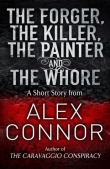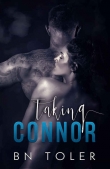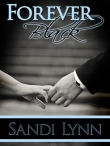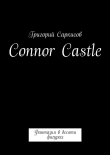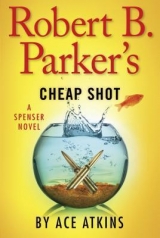
Текст книги "Robert B. Parker's Cheap Shot"
Автор книги: Ace Atkins
Жанр:
Криминальные детективы
сообщить о нарушении
Текущая страница: 13 (всего у книги 17 страниц)
50
Susan had not kept to her word, keeping me out late and thoroughly taking advantage of me after dinner. Feeling rejuvenated, I returned to my apartment the next morning. I showered and dressed, fried bacon and eggs, brewed coffee, and then drove out to Foxboro to meet with Jeff Barnes fresher than a field of daisies.
As I waited in the Pats’ front office, I studied a helmet and cleats behind a glass case that had once belonged to Gino Cappelletti. I wondered how long it would’ve taken Gino to make five mil. When Barnes showed, I decided to ask him.
“About a century,” he said.
“Sounds about right,” I said.
“Those guys in the old league never got paid,” he said. “They played because they loved it.”
“And now?”
“Depends on the player.”
“Kinjo seems to love it,” I said. “Seems like the money is gravy.”
“You bet,” Barnes said. “Poor guy. Did you know we had six hundred people show up to return Kinjo’s game jersey yesterday? People are calling him a killer. Said he might as well been the one who pulled the trigger on his own son.”
“Lots of that stuff on the radio,” I said. “Reason I turn stations.”
“And in the paper and on the TV,” Barnes said. “Boston has a new pastime of personally crucifying Kinjo Heywood. Hell, I had a meeting this morning with the league commissioner. He was worried about Heywood’s safety when he comes back. Some really nasty stuff online. Lots of it racist. Sometimes it makes you wonder about humanity.”
“I have stopped wondering.”
Barnes smiled. Perhaps this had nothing to do with the vote of confidence from Robert Kraft. I wanted to believe I had won him over with my wit and charm.
“You were a cop, Spenser?”
“Yep.”
“I worked for the Pennsylvania state police before getting into this circus,” he said. “Started off with the Eagles and took this job three years ago. I miss the old job, but there are plenty of perks in the NFL.”
“All the hot dogs and beer you want.”
“And the travel details, the groupies, and endless bullshit, too.”
I followed Barnes out of the reception area and along a few hallways and into the stadium itself. He had a key to the side door and carefully locked it before we rounded the upper level and went into the press box facing the end zone. Barnes palmed a handheld radio but turned it off as he stood facing a large glass wall of an empty stadium.
He was dressed as he always dressed, dark suit, white shirt, and red tie. But there was something uncertain and shifting in his eyes. He seemed to have had all the confidence drained from him.
“Have you spoken to Connor?” he said.
“Should I?”
“He won’t call me back,” he said. “I’ve called him fifteen, twenty times.”
“Maybe he’s styling his hair,” I said.
A few men worked on the field below, moving large stencils over yard markers and NFL logos. The motor on the sprayer hammering away, a delicate hiss as color was applied onto the artificial grass.
“Connor always called me back.”
“Maybe he doesn’t have anything to report.”
“That’s what I’m worried about,” he said. “That he’s given up. Moved on.”
I stared at Barnes, appraising his comment. Barnes adjusted the NFL pin on his lapel. He looked away and down at the sprawling field. “They pulled out of Heywood’s house this morning.”
“Not much to investigate when that cord is severed.”
“They could wait and see,” he said. “Follow up on every crank and every lead. Giving up is complete absolute bullshit.”
“Just because they left doesn’t mean they’ve quit.”
“Can you find out?” Barnes said. “Can you let me know if you hear anything? Or know what the hell is going on? There is an additional reward being offered by the team.”
“I never left the job,” I said. “I still work for Kinjo.”
“Good,” Barnes said, clasping me on the shoulder. “You need anything checked out or run down, let me know. I will have my people on standby. Whatever you need. Anything.”
“By the way, just who said a good word about me to Kraft?”
“Some guy named Hugh Dixon.”
“Jesus,” I said. “He’s still alive?”
“Apparently so,” he said. “They serve on the same charitable board.”
“Wow,” I said.
Barnes wasn’t listening. He shook his head. “Someone knows something. Someone needs that money.”
“Kinjo said dead or alive.”
“So do we just wait until someone brings in the head of the kidnapper?”
“That’s certainly the idea.”
“This whole thing is barbaric as hell.”
I agreed with him. He let out a very long, very deep breath and took a seat next to me in the press box. We sat and stared out at the empty stadium for a good long while, until his phone rang and he was urgently needed. He walked me to the parking level and offered his hand. I shook it before driving back to Boston and Government Center to see my old pal Tom Connor.
51
I called Connor and he agreed to meet outside the Federal Building in Government Center. He said he wanted to save me the hassle of going through security. I figured he wanted to ditch me fast, until he invited me for a beer. Being offered a beer by Special Agent in Charge Connor might have made Faust reconsider. But as I wasn’t Faust, and a beer was a bonus with information, I agreed. We walked across the street to one of the five thousand Irish pubs around Faneuil Hall. This one was called Paddy O’s and situated next door to the Union Oyster House.
There was Irish folk music and Guinness on tap and an Irish flag hanging from the wall. I waited for the leprechaun to tap a shillelagh on the bar and ask our poison. Instead, the bartender turned out to be a tall redhead in a tight T-shirt. I ordered a Sam Adams on tap and Connor got a Tullamore Dew on the rocks. Authentic.
“I apologize that I misread you last time, Spenser,” he said. “I was wrong.”
“Yes,” I said. “You were. About a great many things.”
He smiled and laughed as if I’d been joking. His big florid face had a certain hound-dog quality that was difficult to describe. But he definitely had the look of a boozer, broken blood vessels in his cheeks and the whites of his eyes. He had on another Men’s Wearhouse special, charcoal pinstripe, and a dress shirt with a very long, unbuttoned collar. His purple and yellow tie was clipped to his shirt with an American flag pin. I resisted the urge to salute.
We drank.
I said, “I heard you’ve pulled out of the Heywood house.”
Connor didn’t react. He sipped, elbow on the wooden bar, staring straight ahead. No emotion. Noncommittal. “What else can we do?” he said. “Heywood fucked us.”
“Don’t take it personally,” I said. “If he fucked anyone, it was his own family.”
Ice cubes rattled in his glass. He shook it more to chill the whiskey.
“Our talk with him the other night was to explain things,” he said. “I wanted him to know the precarious situation, not to go vigilante.”
“He interpreted that to mean that he wouldn’t see his child again.”
“Did we fucking say that?” Connor said. He shook his head. “Jesus H. This fucking guy has gone nuts.”
The bar was completely empty at four p.m. If we stuck around until five, drinks were only two bucks each. I hoped I would not be sitting around with Tom Connor an hour from now. I tried to move the conversation along.
“Did you give up on Kevin Murphy?” I said.
“That moron didn’t do it.”
“My feelings, too,” I said. “I guess I had higher hopes for him.”
“He was bringing Heywood’s wife some blow and she wouldn’t pay up for it,” he said. “His crazy wife said it was true and I asked her why she hadn’t let her husband know about this when he pulled that gun. I mean, he could have killed someone right there.”
“How I entered the picture,” I said.
“Now we have nothing,” he said. “You can’t trace the demands. And a paid ransom is always a great starting point. We could have followed the money. Whether the child died or not, we would have had some direct contact. We could stake out the drop without them even knowing.”
I nodded.
“It’s done,” he said. “The kid is dead.”
“So you’re quitting?”
“We’re not quitting, but since our victim’s father has put a bounty on the kidnappers, I have to think about the best use of my resources. You know, we do have other major crimes in Boston.”
“I have heard as much.”
“What about you?” he said, nodding to the bartender. She poured him more whiskey while a sad Irish ballad played from the jukebox. The Irish side of me wanted to join in and sing a few verses, had I known them.
“I’m still on the case.”
Connor nodded and smiled to himself. “I grew up in the Old Colony Projects,” he said. “When I was a kid, I remember a couple girls from my church just heading home one day from school and disappearing. The police, the church, and even the local hoods looked all over Southie for them. But we never found them. Sometimes people just disappear, Spenser.”
“This was an orchestrated business deal,” I said. “The kid was taken for money.”
Connor nodded. “Not much of this shit anymore,” he said. “You really got to be some kind of fucking stupid to pull off a kidnapping like you’re Machine Gun Kelly. It’s too hard. Nobody can really work a drop anymore. That’s the shit of the whole situation. The drop is where we could have had them. Now what they did with the kid in the meantime of catching them was the question. But there was never any fucking doubt that we would’ve gotten them.”
“Probably should have explained it better to Heywood.”
“He wants us to hunt them.”
“He wants me to hunt them,” I said.
“He offer you the five mil?”
“Yep.”
“If you get the guy, will you take it?”
“Nope.”
Connor tapped at his glass and waited for it to be filled. He smiled to himself some more in that kind of off-kilter, alcohol-infused way. The bartender let us know that happy hour would begin soon. “No, thanks, sweetheart,” he said.
Connor laid down enough money to cover us both and a handsome tip.
“You see Kinjo?” he said.
“Right after it happened.”
“Have you spoken with him today?”
“Won’t talk to me.”
“I shouldn’t tell you this,” Connor said, draining the rest of the whiskey and patting his lips with a cocktail napkin. “But we have had developments not known outside the Bureau. Certainly by the press. You won’t tell the press, will you?”
I made the universal symbol of turning the key in my closed mouth. I stopped just short of throwing the imaginary key over my shoulder.
“We got some clothing sent to Heywood’s house,” he said. “Kid sizes. Sizes to fit Akira.”
I took in some air. I shook my head.
“Clothing was bloody and torn,” he said. “We got it at the lab right now to test blood types, hair, and all that CSI shit. But when we showed him the T-shirt, Kinjo broke down. He knew the clothes, IDed it as what the boy had on the day he’d been taken. I’ve seen a lot of people lose it before. But I’ve never seen something tear loose in a man like that. His brother and a couple lackeys had to hold him down. Four fucking men to hold one. I think he would have ripped down that mansion brick by brick if he could.”
“Jesus,” I said.
“Been asking for Jesus a lot around the Heywood house,” Connor said, turning to leave. “Looks like he never showed up.”
I stayed at the bar and could see Connor dodging cars as he crossed the street to the wide brick expanse of Government Center.
52
When I returned to my office, I was surprised to find Z sitting in my client chair. And I was even more surprised to see Ray Heywood sprawled out asleep on my leather couch. His snoring sounded like the approach of the 20th Century Limited.
I closed the door and walked to the filing cabinets to start to make coffee. I had some Red Barn dark roast. I filled water into the carafe, added several heaping spoonfuls, and then sat at my desk. I leaned back in my chair and crossed my feet at the ankles.
“I still had the GPS on his car,” Z said. “Didn’t have anything else to do, so I tracked him.”
“Initiative.”
“Well, you told me to keep an eye on him,” Z said. “I found him at a bar in the South End called Slade’s.”
“And he was well on his way.”
“Yep,” Z said.
“Talkative?”
“Not much I could understand,” Z said. “But he said he wanted to see you. Said he had something important to say.”
The coffee made gurgling sounds and filled the office with a pleasant, homey smell. “He give you any hint?”
“Nope,” Z said. “I tried. Mainly he talked about Kinjo. He’s very upset at Kinjo for what he did. Said Kinjo was going to have to answer for what he’d done.”
“He’ll have to get in line,” I said. “I just came from Foxboro and talked to Barnes. His fan base is diminishing.”
“Can’t get worse,” Z said.
I tilted my head and watched Ray’s thick body inflate and deflate. His snoring threatened to disrupt the entire office building. I turned back to Z and took in a breath. “It’s gotten worse.”
Z looked to me. And I told him what Connor had said about the clothes.
“Explains why Ray went off the rails,” Z said. “But he didn’t tell me about the clothes. He just kept saying the kid was dead and they were to blame. He was drinking Courvoisier and milk.”
“Eek.”
“With a Rumple Minze chaser.”
“Double eek.”
Z nodded. “Had the bartender help me get him into my car,” Z said. “Man is a lot heavier than he looks.”
Ray Heywood snorted a bit, his red polo shirt untucked, his designer jeans loose and baggy on his stumpy legs. His snoring grew so intense that his breath stopped, and he gurgled awake for a moment. I looked to Z. Z shrugged as Ray went back to sleep.
I kept a medical kit in the bottom-right drawer of my desk for cuts, bruises, snakebites, and the occasional bullet hole. In the kit, I found a handful of smelling salts I’d got from Henry Cimoli in case any female clients were so overcome that they got the vapors. I cracked open one and slid it under Ray Heywood’s nose.
He awoke with a start, a wide-eyed and very large, very round flopping fish on the couch. His eyes were bloodshot, and he stared at me as if trying to get me into focus.
“Where the fuck am I?” he said.
Z and I remained silent. He glanced around the room, realizing he was no longer at Slade’s in the South End. He pushed himself up on the couch, steadying himself with a thick hand on the leather arm. He hiccupped very loudly.
I walked over to the filing cabinet and poured coffee into a thick ceramic mug from the Agawam Diner.
“How’d I end up here?” Ray said, rubbing his face. He took the coffee.
“You wanted to see me?”
“I didn’t say that.”
“Yeah,” I said. “You did.”
Ray turned to Z, who had scooted the client chair around to face him. Z nodded his approval of what I’d said.
“I’m fine,” Ray said, trying to stand.
He was very wobbly on his feet and sat back down.
“Drink the coffee,” I said. “There’s a wash basin in the corner if you don’t mind the frilly towels. And a bathroom down the hall.”
“I’m fine.”
“Why’d you want to see me?”
“I didn’t—”
But the statement was cut off when he turned to Z. Z had become very good and very practiced at what we call in the biz the “hard look.” Sometimes he made Geronimo look like Norman Vincent Peale.
“I think I’m going to be sick.”
Z stood and walked toward my office door and brought back a wastepaper basket. He sat it at Ray’s feet and then Z sat back down. He crossed his arms over his chest and waited. Z’s eyes were obsidian and flat and hard.
He retched a few times but fortunately did not sully my basket. The basket was mainly used for overdue bills and parking tickets.
“Someone sent Akira’s clothes,” Ray said. “They had blood on them.”
He looked to me as he spoke, seeming to find more understanding. I leaned back and listened. He tried some coffee and made a face as if it were not to his liking. But since this was from a man who drank brandy with milk and a Rumple Minze chaser, I was not offended.
“You know?” he said.
I nodded.
“Jesus God,” Ray said. “He’s probably dead.”
I didn’t say anything. The room was very still and very quiet. There were slight traffic sounds, horns and motors, out on Berkeley. The night was coming on, and oblong shadows formed on my desk, stretching into the far corners of the office.
“What did you want to tell me, Ray?” I said.
“Does it matter now?”
“It always matters.”
Ray swallowed. He seemed to stifle being sick again. He held the coffee but did not touch it. He nodded along with his thoughts. Z and I stayed silent, eyes on Ray, air seeming to be sucked from the room.
“Okay?” I said.
Ray stared at me.
“You can say what you want to say, or you can continue trying to embalm yourself for as long as it takes.”
In such situations, an entire minute of silence was a very long time.
“Okay, okay, okay,” Ray said. “Fuck.”
“Okay what?” I said.
“Antonio Lima’s fucking family,” he said. “Rosen thought we could throw some money at them and all this shit would go away. But they never forgave Kinjo. They always believed he killed their son. He never would kill nobody. And now those fucking people have something to do with Akira. It’s all gone. It’s all over. Everything. Kinjo won’t ever come back from this. That boy was his heart, man. He’s done.”
Ray hiccupped some more. He drank some coffee, but this time did not make a face.
I took my feet off the edge of the desk and leaned forward. I dropped my chin but tilted my eyes upward. I nodded and gave him a reassuring smile. Father Flanagan returns.
Z had not uncrossed his arms. He sat not four feet from Heywood, just staring. I continued to offer warm encouragement.
“There was this woman.”
“Lela Lopes?” I said.
“You know, then,” Ray said.
I did not answer, as I had no idea what he was talking about.
“That bitch was trying to shake us down two months ago.”
“Did you meet with her in New York?”
“Here in Boston,” Ray said. “She’s back in Boston, man. She and the Lima boys grew up here.”
53
She was here the whole time,” Z said.
“Yep.”
“Right under our noses.”
“But with a different name. A flagrant misstep by the investigator,” I said. “I focused on New York.”
“If we hadn’t kept on Ray.”
“You always keep up with someone like Ray Heywood,” I said. “Something will break. I think he was with Kinjo two years ago.”
Z looked at me.
“Working theory,” I said. “He was the third man.”
“Why’d he lie?”
“And why did Kinjo and his teammates lie for him?”
We sat in my Explorer on Dudley Street in Roxbury, not far from Blue Hill Avenue. A check for an Eva Lopes, the name Ray had said Lela used now, of approximate age and ethnicity led us to a recently rehabbed two-story house cut into several apartments. The building was light blue, with white window casings. All the windows and front doors had bars, and a chain-link fence surrounded the property. Along Dudley Street, storefronts sat boarded up and shuffled between vacant lots.
After some minutes, a young black man toting a backpack turned up the cracked walkway to the apartments. We followed him to the front door as he tapped in his security code. Z caught the door in hand.
The young man stared at us, waiting to hear an explanation. Neither of us replied, only following him into a central hallway, where he walked up some steps, turning back only once.
We followed the hall and knocked on the door for apartment 1C.
No one answered.
“Have I ever shown you my outstanding technique for removing a door frame and deadbolt without leaving a trace of tampering?” I said.
“You have.”
Upstairs, a door opened and closed. The hallway was silent.
“Good.” I stepped back two paces and kicked in the door with the heel of my right boot. The door frame around the deadbolt splintered.
“That works,” Z said.
I removed the shattered pieces of wood below and closed the door behind us. Once inside, I flipped the switch, but the hall light didn’t work. I walked into a narrow hallway, my eyes adjusting to the dim light from a streetlamp outside the window. I turned a corner and tried another switch in a kitchen that lit a hanging lamp over a small table. The hallway led to a modest-sized living room with two closed doors on each side. Two windows offered a spectacular view of the identical-looking apartment building next door, with maybe six feet between the structures.
The living room was a mess. There was a tornado of clothes and other crap spun around the room as if someone had just moved in or was planning on moving out. Half-empty boxes. Clothes still on hangers. Half-packed or unpacked boxes. A hand-knitted blanket covered up an old recliner in a far corner. Bookshelves constructed of plastic milk crates lined one wall. On another, a prefab entertainment center held a small flat-screen television. Z closed the blinds and turned on a table lamp. We walked around the messy piles of clothes, books, and DVDs, most in Portuguese, and searched for a clue.
Lela Lopes had a lot of clothes and, unbelievably, more shoes and boots than Susan Silverman. This, in and of itself, may have been a crime.
A green sleeping bag lay on a couch with an old pillow. In front of the couch was a small table covered in a pizza box from Domino’s and an open bottle of Pepsi.
“If you find something,” I said, “please tell me the game is afoot.”
“Afoot?” Z said.
“Afoot.”
Z nodded and picked up a framed photograph from a coffee table. A light-skinned black woman with a lot of black curly hair, huge brown eyes, and a bow-shaped mouth stood with an older woman, possibly her mother. If the younger woman was Lela Lopes, it was easy to see how she might ignite a battle between two men pretty quickly.
“Not bad.”
I agreed.
“Not much of a homemaker,” Z said.
I picked up an ID badge for Eva Lopes from House of Blues, the kind you wear on a lanyard. We also found four House of Blues T-shirts strewn around the room. “At least she is, or was, employed,” I said.
Z opened the door closest to the kitchen and walked inside. I sorted through a few boxes, finding several boxes of perfume, open liquor bottles, and folded underwear and socks. I took the opposite door from where Z had entered and found a bedroom and bath, most of it dismantled, mattress and box springs on the floor and bare of sheets. A large dresser sat with open drawers empty of clothing. Two boxes were sealed with tape, and I slit them open with a pocketknife to find stacks of T-shirts, blue jeans, and designer tops. I was down on my haunches as I searched. The carpet was nondescript beige and probably had never encountered a vacuum cleaner. I stood up, a mild protest in the knees, and checked in and around the bed and in and around the bathroom and behind a big oblong mirror and through a selection of assorted shoeboxes. The shoeboxes, surprisingly, contained shoes.
The room was dark, with a very narrow window holding a very narrow air-conditioning unit. I walked back into the living room and into the kitchen, checking cabinets and a refrigerator. Almost nothing inside, and what was left was hard and moldy. I went through a pile of bills on the counter, going through each section, step by step, not overlooking a scrap, when I heard a doorknob rattle and the scraping of door on busted frame. I stopped riffling through bills and stood very still.
I was not sure Z heard the door, but no noise came from the bedroom.
Footsteps echoed down the little hall, passing the kitchen with me hidden in an alcove.
I could see part of a man from under the hanging cabinets over an open counter to the living room. I stilled my breathing and my feet and anything else that might alert him to my presence. The man was quiet, too, shuffling about the room in a leather jacket, jeans, and sneakers. He made several sighs, searching for something lost in the piles of clothing and assorted junk.
I heard Z flick off the light switch in the bedroom and walk out.
I pulled my .38 but holstered it quickly as the man took off down the hall, flinging open the broken door and running into the building’s main hallway. Z ran ahead of me and I followed them down the long open hallway and out through the barred security door, catching sight of both crossing a dusty, weedy lot. The man in the leather jacket, a young black man, hopped a chain-link fence, sailing across with no discernible effort.
It had been a while since I had jumped fences. Z gripped the edge of the chain-link fence with his left hand and sailed his legs over to the right. I had to use both hands and my right knee to get across and find us in back of a three-decker with two homemade laundry lines and plastic kids’ toys. The man kept on running, Z making some progress, as they made it to another chain-link fence, both jumping the fence with little effort. The seasoned gumshoe needed a bit more propulsion as we all sailed into a back row of storefronts and a narrow alley of Dumpsters and trash cans and flattened boxes. I was gaining on Z, catching up with him, both of us closing on the guy, when a goldish-brown Pontiac with bright silver rims came whipping around the corner, speeding straight for us. The man ahead of us stopped hard in mid-stride, looking to us and then back to the car, catching his breath as the car skidded to a stop and a passenger door flew open. He looked a final time at us and then jumped into the car, which wasted no time coming right for where we stood. Z and I jumped from the trash cans up to the top of a Dumpster as the car flew past us. There were few things less dignified than using a Dumpster to save your life.
“At least the top was closed,” Z said.
“Always an upside.”
“But we lost him.”
We were both breathing very heavy. I was glad Z was breathing just as heavy.
“But now we know that Victor Lima is in Roxbury,” I said. “Now we just need to find out where he’s gone.”
“That was Lima? You sure?”
I shot Z a look. He grinned and nodded.
“You know the other guy who was with him?” Z said.
I shook my head. We both walked back to the car, opting to forgo the fences and take Blue Hill Avenue by using the sidewalk.


